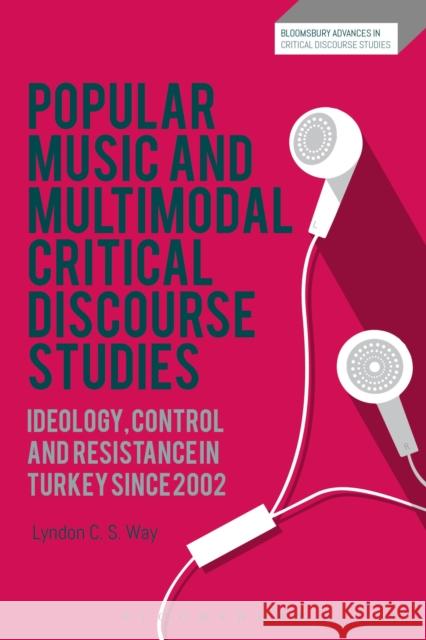Popular Music and Multimodal Critical Discourse Studies: Ideology, Control and Resistance in Turkey Since 2002 » książka
Popular Music and Multimodal Critical Discourse Studies: Ideology, Control and Resistance in Turkey Since 2002
ISBN-13: 9781350016446 / Angielski / Twarda / 2017 / 216 str.
Popular Music and Multimodal Critical Discourse Studies: Ideology, Control and Resistance in Turkey Since 2002
ISBN-13: 9781350016446 / Angielski / Twarda / 2017 / 216 str.
(netto: 637,00 VAT: 5%)
Najniższa cena z 30 dni: 644,49
ok. 30 dni roboczych.
Darmowa dostawa!
Popular music has long been used to entertain, provoke, challenge and liberate but also to oppress and control. This book asks what is the nature of relations between music and meanings, and more specifically, between music and political meanings. Can popular music be political? What types of popular music work best with politics? What types of politics work best with popular music? This book considers the extent popular music can articulate ideas about society, identities and events, questions which are commonly asked across the field of popular music studies.
These issues are explored in this book by considering exactly how popular music is perceived by fans to be political. That is, this book considers how a song, a video, a concert, a band or any other musical commodity conveys meanings about power, politics and identity. By answering how this is done, questions about what become clear.
Leaning on Multimodal Critical Discourse Studies (MCDS), this book reveals the deeply political role played by some popular music. The book demonstrates how MCDS can provide an important and timely step forward due to its attention to the details of how communication takes place, its interest in discourse and how ideologies are naturalised and legitimised.
It is set in contemporary Turkish society, with its complex and deep ideological divisions increasingly obvious under the stewardship of President Recep Tayyip Erdogan and his centre-right political party in power since 2002. It looks at how the authorities seek to harness and control popular music and how a wide range of popular music genres such as rock, rap, protest and folk music expressed in official promotional videos, protest cut-and-paste offerings, party-political election songs, live music events and internet discussions about popular music emerge as sites of power and resistance in certain venues and particularly across social media.











